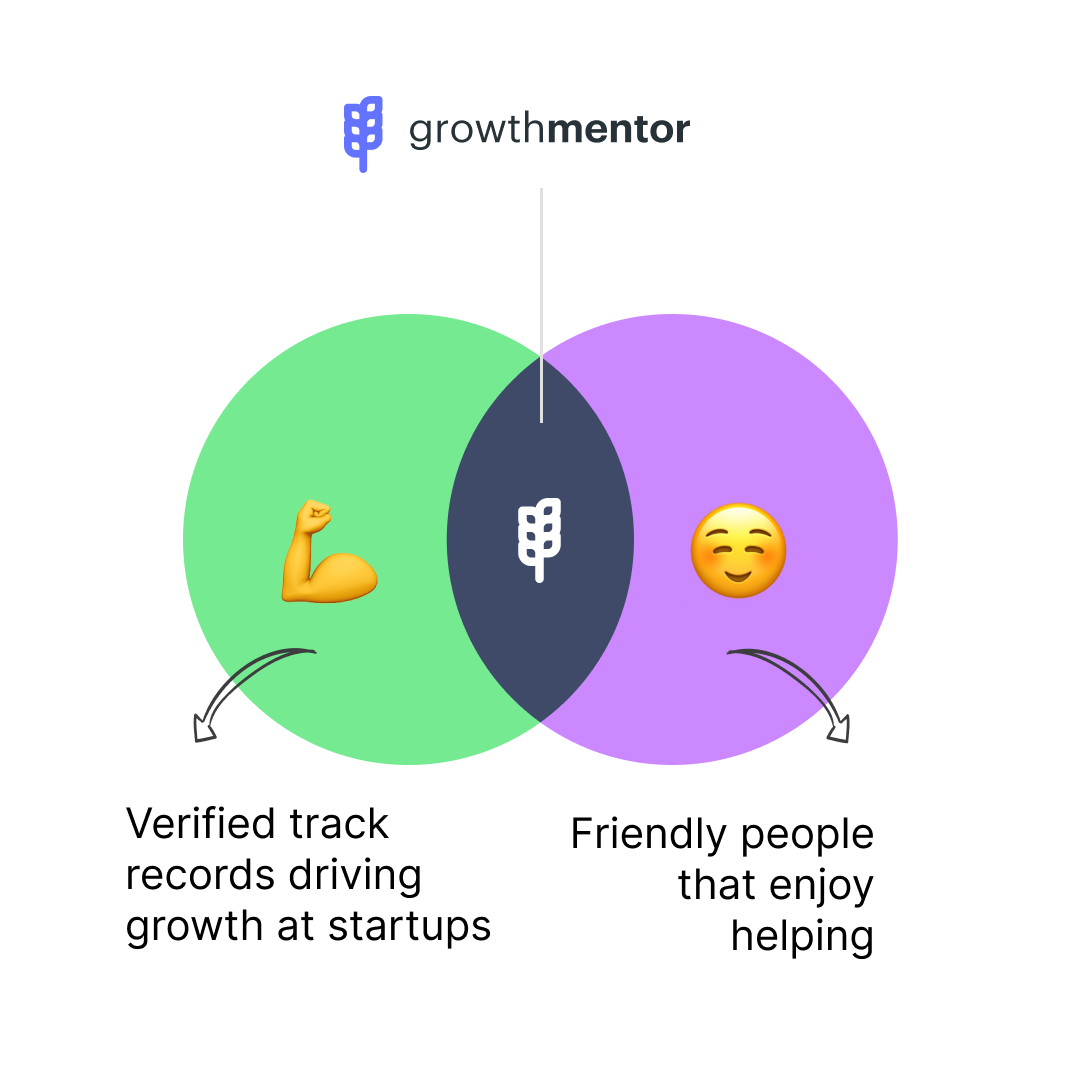Overwhelmed Startup Founder: How to Cope Under Pressure?
If you feel overwhelmed as a startup founder, you aren’t alone.
As a founder, you are statistically 50% more likely to suffer from a mental health issue, such as anxiety or depression, and 45% of entrepreneurs report feeling stressed.
The idea of running a business is exciting and you may wish you became your own boss sooner than you did. However, being a founder can also leave you running low on energy, motivation, or funds, which could lead your stress to outweigh the fun.
Although being an overwhelmed startup founder is somewhat inevitable, there are some ways you can manage your impending deadlines, unexpected costs, or too much enthusiasm for work and not enough energy left to look after yourself.
Most founders will relate to how you are feeling, and it’s become an unspoken norm that you will feel like you work 24/7 when starting a business. But this doesn’t mean you have to settle for elevated stress levels. In this article, we will go over how to feel more in control of your business while allowing you to enjoy the benefits of being your own boss.
Why many startup founders feel swamped at the start
1. Fear of failure
When the media surrounds us with entrepreneurs’ success stories, it can be easy to forget that these successful business owners felt the overwhelming feeling of failure at the beginning of their journey. Our advice? Believe in yourself and alter your mindset to see ‘failure’ as a natural setback in business and use it as an opportunity to learn.
2. Trying to do too much
As a startup founder, you are probably used to wearing many hats, maybe hats you never even expected to wear: from balancing finances to customer service, logistics to forecasting, and being a manager while also feeling like your own employee.
In the start, it might be essential that you navigate through all these roles to find what you thrive in and understand your business from the ground up. However, many startup founders highlight trying to do too much and always having ‘20 items on their to-do list at the end of the day’ as a key reason for burnout.
3. Not surrounding yourself with the right team
Another reason you may feel overwhelmed at the start of your journey may be because of the people you surround yourself with. For example, Jason Crawford of start-up Fieldbook, cited a contributing factor to his business going bust was failing to make the correct key hires in the early stages.
Of course, you can’t blame your team for your lack of motivation, planning, or sales. However, hiring the right team can help you see your dream into reality while helping you avoid overwhelming situations. Hiring the right people can allow you to take (necessary) time away from your desk to rest, do things you love, and spend time with loved ones.
5 Ways to cope with being overwhelmed as a startup founder
1. Outsource
When you start trying to do everything at once, something is bound to slip up. To avoid this cause of overwhelm, recognize when it’s time to make hires, outsource to freelancers, or delegate more responsibility to your team.
Although you may worry about trusting others with your business, it can be a mutually beneficial scenario. You benefit from alleviated stress, and your employees are likely to be happier when they are given more responsibility. A study found that 72% of American employees hoped their line managers would offer them more responsibility. Giving your team members more responsibility can motivate them to work harder, which can, in turn, help you run a more successful and profitable business.
2. Know your strengths (and weaknesses)
You’ve probably been asked to describe your strengths and weaknesses in a job interview before (we all know the trick of saying your biggest weakness is being a perfectionist, then spinning this negative into a positive by highlighting your excellent attention to detail). But have you ever sat down and been truly honest about where your skills lie and where you would be better off trusting someone else.
You may find it helpful to go through this self-reflection process with a friend or professional business mentor. Browse through over 400 of our friendly growth mentors to find someone that works for your goals, personality, and business. Then book a mentor session to go through this exercise together.
Although this process can take some time, and you may believe you already know the answer, tracking your progress and monitoring factors such as your energy levels or motivation against each type of task can help you tailor your role to suit you. Therefore, helping you become a more efficient startup founder and reducing the overwhelm you may be feeling.
3. Try a new way of structuring your day
As a small business owner, you are probably aware that no matter how well you structure your day and create a schedule to follow, inevitably, things don’t go to plan. Consequently, creating a plan for your day or week ahead can feel like an uphill battle every day.
Try out different scheduling methods and record your stress levels and productivity against each approach. You may even find it helpful to work with a virtual mentor to discuss the right scheduling plan for you.
Scheduling ideas:
- Time blocking. Set aside 30-minute, 1-hour, and 2-hour slots depending on the lengths you estimate a task will take you.
- Work with your natural peaks and dips in energy.
- Use the Pomodoro technique of 25 minutes work to 5-minute water, snack, or walk break.
- Categorize your tasks into the time they take or the energy required to complete the tasks. For example, Grace Beverley, the founder of multimillion-dollar sustainable activewear brand Tala, categorizes her tasks as ‘quick ticks’ to get her started for the day with a dopamine hit to motivate her to accomplish more demanding tasks. Then she breaks down other items on her to-do list into tasks and projects to plan the rest of her day.
- A founder with over 20 years of experience as an entrepreneur suggested using this framework to order your tasks into four categories: important-urgent, important-unurgent, unimportant-urgent, and unimportant-unurgent. This framework can also help you identify tasks you can delegate, per tip number one.
4. Use less technology
Ok, this tip might sound counterintuitive but, technology can simultaneously help and hinder our productivity.
For example, on average, each person using a smartphone gets 46 push notifications every day. This is 46 times your phone is poking you like a small child asking for attention, and 46 times you have to show willpower by not engaging with these notifications.
Software and instant communication can help us achieve more in a day than we could never dream of doing 50 years ago. However, it can also get in the way of our flow, cause distractions, add pressure, and increase anxiety and stress levels.
Therefore, we recommend you do what you can to eliminate the negative impacts of technology.
For example:
- Turn your notifications off on your computer and phone to avoid triggers that may affect your workflow.
- Switch to a pen and paper to-do list, so you aren’t tempted to reply to emails while checking your list.
- Set up automation to avoid manually having to do tasks you could set a computer to complete.
5. Community is key
You may feel isolated as a new startup founder and this takes a toll on your energy and motivation to run your business.
Additionally, you have less energy to continue with your social life outside of work and feel less connected to friends and family.
Loneliness can negatively impact your productivity, which may lead you to work extra hours to compensate causing this negative cycle to perpetuate.
But you may be surprised how many people are in the same boat as you. Just a quick Google search reveals pages of articles written by other overwhelmed business owners discussing loneliness.
How to build a supportive community around you:
- Meet other start-up founders in person. The Meetup Up app is a great way to connect with people in your local area based on your interests. Simply sign up and search keywords such as business, young professional, founder, entrepreneur, or networking and find events near you. You can also do a google search with these keywords and your location to see any other meet-ups you can sign up for.
- Network with founders online. If you cannot find suitable networking events in your area, Meet Up, and other networking businesses also host virtual events.
- Talk to those already in your network. Do you already have anyone in your contacts that has been a founder or has an interest in entrepreneurship? If so, reach out to them. Of course, there is always a worry you may be imposing on these people for help. However, you may be surprised at how excited these people could be to discuss your business and use their experience to offer advice.
- Start a new hobby. Although you may feel tired and too busy to fit in a new hobby, this can be a great way to meet new people. You can’t guarantee they will share you passion for freelancing or running a business but it may help to gain some new friends who can support you as your business takes off.
- Start a support group yourself. If you can’t find any local support groups for founders, start your own! You may be surprised how many other local business owners also need a little support. If you need a more professional approach, tailored therapy for startup founders could also work.
- Hire a mentor. One user on Quora admitted they still felt lonely after their business launched. However, they also suggested that ‘you might get some support from a coach, someone with enough experience to see the light at the end of the tunnel’. There are countless ways a growth mentor can help you hack your learning curve and grow your business and build momentum.
FAQ
Approximately 90% of startups fail. Yikes – this statistic is far from comforting. However, it’s highly likely that a good proportion of these failed founders aren’t taking their business seriously enough, are in the wrong market, and don’t have the right support.
If you are 100% dedicated to making your business succeed, have done extensive research, and are working with a business mentor, you are more likely to be in the 10% of start-up successes.
Better yet, founders who start a successful business up to their chances of their second startup being prosperous to 30%. Therefore, using the knowledge you gained from starting a business in the past can make you three times more likely to succeed in your next business venture. However, even if you haven’t created a business before, you can use coaches’ experience to skyrocket the potential for success in your first business.
According to an article by Investopedia, the reasons a business fails within the first year include a lack of funding, ineffective marketing, and neglecting to do enough research.
However, you don’t have to fall into these common pitfalls as a new startup founder. Even if you are starting your first business, you can acquire a mentor to help you navigate these situations and set yourself up for future success.
As long as buying from a small business is convenient, 91% of customers say they prefer to choose a small business. Therefore, the buyer is on your side and there is an opportunity to make your start-up a success story.
Leverage mentorship opportunities
If you relate to feeling like an overwhelmed startup founder, use the power of technology to connect with a Growth Mentor who can support you. Bounce your ideas off your mentor, ask them to offer suggestions of where you can focus your efforts, and feel connected to an actual human.
With over 440 knowledgeable mentors on the Growth Mentor database, there is someone in almost every industry, and there is sure to be someone who can help you as a founder or support you when you are overwhelmed starting a new job. The mentors can help motivate you and help put you in the 10% of successful startups.



